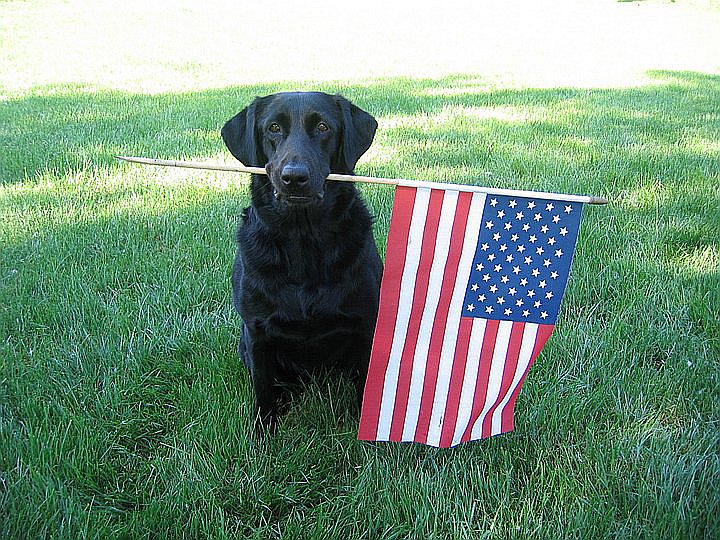Top Ten Pet Dangers on the 4th of July
Happy birthday America! The 4th of July is an exciting holiday, but it can be riddled with dangers for our furry friends.  Some of them are more obvious than others. Make sure that you know the big ones to help your pets steer clear of any holiday mishaps.
Some of them are more obvious than others. Make sure that you know the big ones to help your pets steer clear of any holiday mishaps.
- Fireworks – This one is kind of a no-brainer. After all, lighting fireworks can be dangerous for people, too. Did you realize that even unlit fireworks pose a danger to your pet? Ingestion can be toxic. Help you pet avoid burns, trauma, and even death by just keeping them indoors.
- People food – Many favorite picnic and party foods contain ingredients such as chocolate or grapes that can be deadly. Even overdoing it with treats or fatty foods can lead to vomiting, diarrhea, or more serious conditions such as pancreatitis.
- The heat – Pets should stay indoors when possible and always have access to fresh water and shade. Never leave your pet unattended in a car.
- Themselves! – The loud noises and chaos of the holiday can lead to even the most docile pet becoming frantic. Make sure your pet has a safe haven within your home and keep anything dangerous out of reach. Some pets may even require a sedative to get them through the holiday.
- Alcohol – Be sure that any alcohol around during the holiday festivities is kept out of reach.
- Lighter fluid and matches – Lighter fluid can be irritating to the skin and ingestion of either matches or fluid can lead to serious problems in pets.
- Bug sprays and insect repellants – Many human-use bug sprays can cause problems for pets such as digestive upset or even neurological problems. Citronella products and lead to problems if ingested or inhaled.
- Glow sticks – These fun holiday toys can be harmful if swallowed due to the risk of gastrointestinal obstruction or irritation.
- Decorations – Red, white, and blue décor can look like a fun chew toy! Keep decorations out of paws reach.
- No ID – Pets that run when scared are more likely to become separated from their owners. Be sure your pet is wearing current identification at all times. If your pet isn’t microchipped you should consider it, and if he is you should be sure that your contact information is up-to-date.
If you have any questions contact us or reach out to your primary veterinarian.


